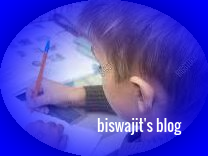Search This Blog
Streamline productivity, balance wellness, and achieve goals with versatile solutions for work, life, and success
Featured
- Get link
- X
- Other Apps
Written Job Interviews: Tips and Strategies for Success with 10 tips
written interviews
Written interviews have been used in both traditional and modern systems as a means of assessing a candidate's suitability for a job position. In traditional systems, written interviews were typically conducted in person, with the candidate completing a written test or answering a series of written questions under the supervision of an interviewer. The responses were then evaluated by the interviewer, who would use them to determine the candidate's strengths and weaknesses.
In modern systems, written interviews have largely moved online, with candidates completing the written test or answering questions via email, online form, or through an online interview platform. This has made it easier for companies to administer written interviews to a larger number of candidates and has also allowed for greater flexibility in terms of scheduling.
One of the key advantages of written interviews is that they allow for a more objective evaluation of candidates. By standardizing the questions and evaluation criteria, it is possible to compare the responses of different candidates more objectively. Additionally, written interviews are less prone to biases related to appearance, ethnicity, or other demographic factors that can influence in-person interviews.
There are also some disadvantages to written interviews. For one, they may not be as effective in assessing a candidate's communication skills or interpersonal abilities, which are often critical for many jobs.
some candidates may struggle with written interviews, particularly if they have limited proficiency in the language being used.
written interviews can be a valuable tool for assessing candidates in both traditional and modern systems. However, it is important to recognize their limitations and to use them in conjunction with other assessment methods to get a more complete picture of a candidate's abilities
classification
Written job interviews can be classified into different types based on the format and delivery method. Here are some examples of written job interviews in modern and traditional systems:
Traditional Written Job Interviews: A Brief Overview
In traditional job interview settings, written interviews often take the form of pen-and-paper tests, take-home tests, interview questionnaires, or assessment center exercises. These interviews are typically conducted in person and are designed to assess a candidate's qualifications, skills, and abilities. While written interviews have their advantages, they may not be as effective in assessing communication skills or interpersonal abilities
In traditional system
- Pen-and-Paper Test: A candidate is given a written test that includes multiple-choice questions, short-answer questions, and essay questions.
- Take-Home Test: A candidate is given a set of questions or assignments to complete at home and return by a certain deadline.
- Interview Questionnaire: A candidate is given a series of questions to answer in writing during an in-person interview.
- Assessment Center Exercises: A candidate is required to participate in a series of exercises, including written tasks such as case studies and reports.
Read More CLICK HERE
Modern Written Job Interviews: A Brief Overview
In modern job interview settings, written interviews have largely moved online, with candidates completing digital forms, answering questions via email, participating in video interviews, or interacting with chatbots. These interviews offer greater flexibility and scalability, but may also have limitations in terms of assessing communication and interpersonal skills.
In modern system
- Online Application Form: A candidate completes a digital form that includes questions related to their qualifications, experience, and skills.
- Email Interview: A candidate answers a set of interview questions sent via email.
- Video Interview: A candidate records their responses to a set of interview questions using a video interview platform.
- Chatbot Interview: A candidate interacts with an AI-powered chatbot that asks interview questions and records their responses.
- Each type of written job interview has its own advantages and disadvantages, and they may be more or less appropriate for different job positions and industries. It is important for employers to carefully consider the format and delivery method of written job interviews to ensure they are fair, valid, and reliable measures of a candidate's suitability for a job
Read More CLICK HERE
10 Tips for Written Job Interviews
- Prepare thoroughly: Research the company and the job position, and review the questions or tasks you will be asked to complete.
- Follow instructions carefully: Make sure you understand the format and delivery method of the written interview, and follow any guidelines or instructions provided.
- Manage your time wisely: Allocate enough time to complete the interview, and pace yourself to ensure you have enough time to answer all questions or tasks.
- Be concise and clear: Use clear and concise language to answer questions or complete tasks, and avoid rambling or going off-topic.
- Proofread your work: Review your responses carefully for errors in spelling, grammar, and punctuation, and make sure they are well-organized and easy to read.
- Show your personality: Even in a written interview, you can convey your personality and enthusiasm for the job position by using a friendly and professional tone.
- Provide specific examples: Use specific examples from your work experience to illustrate your skills and qualifications, and provide evidence to support your claims.
- Be honest: Don't exaggerate your qualifications or experience, and be honest about your strengths and weaknesses.
- Ask questions: If given the opportunity, ask questions about the company or the job position to show your interest and engagement.
- Follow up: After the interview, send a thank-you note or email to the interviewer to express your appreciation and reiterate your interest in the job.
Popular Posts
Eco-Friendly Hotel Startup in India
- Get link
- X
- Other Apps

Starting a Themed Hotel: Insights and Steps to Follow
- Get link
- X
- Other Apps



Comments